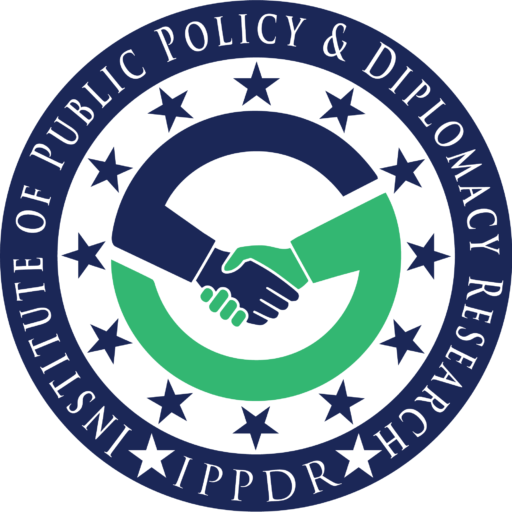Diplomacy in the Digital Age: The rise of Cyber Diplomacy
Diplomacy is profoundly transforming in an era of digital communication and technological innovation. The conventional instruments of diplomacy, such as direct negotiations, official statements, and treaties and agreements, are increasingly enhanced and at times substituted by digital technologies and cyber approaches.
This exponential advancement has stressed the undeniable need to efficiently adopt cyber diplomacy, an essential element of contemporary international relations.
What is Cyber Diplomacy?
Cyber diplomacy refers to using digital platforms, tools, and cyber policies to engage in diplomatic activities, for example, video conferencing, e-voting, and so much more. It encompasses a wide range of actions, including but not limited to facilitating dialogue between nations, promoting global norms for cyberspace governance, and addressing cross-border cyber threats, including hacking and misinformation.
At its core, cyber diplomacy leverages the digital world’s interconnectedness to foster collaboration, resolve conflicts, and advance national interests.
The Digital Transformation of Diplomacy
Digital technologies have fundamentally altered the landscape of diplomacy in several ways:
Accelerated Communication
In the digital age, information travels at lightning speed through the internet. Governments can now communicate their positions on global events in real time via social media, official websites, and live-streamed press conferences.
Example: The Twitter diplomacy of world leaders like for example. U.S. President Donald Trump and current Ukrainian President Volodymyr Zelenskyy demonstrate how platforms like Twitter have become tools for shaping global narratives.
Expanded Public Diplomacy
Digital platforms enable nations to engage directly with foreign publics, bypassing traditional media channels that necessitate extra investment in travel expenses. This form of public diplomacy strengthens cultural ties, promotes national interests, and counters misinformation.
Example: The U.K.’s “GREAT” campaign leverages social media to promote British culture, tourism, and business globally.
Cybersecurity and Digital Governance
Diplomacy now extends to cyberspace governance. Nations must collaborate to create rules for data protection, intellectual property rights, and ethical AI usage.
Cyber diplomacy forums, like the United Nations Group of Governmental Experts (UNGGE), are critical platforms for negotiating these norms.
Challenges in Cyber Diplomacy
While digital tools have enhanced diplomacy, they have also introduced unique challenges:
Misinformation and Propaganda
The spread of fake news and disinformation campaigns on digital platforms can undermine trust and escalate conflicts, take an example of elections in several nations, misinformation on platforms like Facebook and WhatsApp has been weaponized to influence public opinion.
Cybersecurity Threats
Cyberattacks on critical infrastructure, government systems, and private companies pose significant risks to international stability.
Example: The SolarWinds cyberattack revealed vulnerabilities in global supply chains, prompting diplomatic discussions on cybersecurity cooperation.
Digital Inequality
Not all nations have equal access to digital tools or the expertise needed for effective cyber diplomacy. This digital divide can exacerbate existing geopolitical inequalities.
The Role of Diplomats in the Digital Era
The role of diplomats has evolved in response to these digital changes:
Digital Literacy as a Core Competency
Modern diplomats must understand how to navigate social media, analyze big data, and use AI-driven technologies. Digital literacy is no longer optional but a cornerstone of effective diplomacy.
Multistakeholder Engagement
Diplomats now engage with various actors, including tech companies, civil society organizations, and cybersecurity experts. Collaborative diplomacy is essential for addressing complex issues like cybercrime and data privacy.
Crisis Management in the Digital Sphere
In an age where cyberattacks and digital misinformation can trigger international crises, diplomats must be equipped to manage these situations swiftly and effectively.
Cyber Diplomacy in Practice: Real-World Examples
The Paris Call for Trust and Security in Cyberspace
Launched in 2018, this initiative brings together over 70 countries, tech companies, and civil society groups to promote principles for cybersecurity and responsible behavior in cyberspace.
Digital Diplomacy During COVID-19
The pandemic underscored the importance of digital tools in maintaining international relations. Virtual summits, such as the G20 meetings conducted online, demonstrated how diplomacy could adapt to unprecedented challenges.
EU Cyber Diplomacy Toolbox
The European Union developed tools to respond to malicious cyber activities, including diplomatic measures such as sanctions and joint statements.
Future Trends in Cyber Diplomacy
Ongoing technological advancements and geopolitical shifts will shape the future of cyber diplomacy. Key trends include:
AI and Predictive Analytics in Diplomacy
Artificial intelligence will enable diplomats to analyze global trends, anticipate conflicts, and develop data-driven strategies.
Digital Ethics and Norms
As technologies like AI and blockchain become more prevalent, nations must collaborate on ethical frameworks to guide their use.
Enhanced Public-Private Partnerships
Tech giants like Google, Microsoft, and Amazon will play an increasingly significant role in shaping cyber diplomacy agendas, particularly cybersecurity and digital governance.
Conclusion: Embracing the Digital Era
In the digital age, the art of diplomacy is evolving and expanding. Cyber diplomacy is no longer a peripheral aspect of international relations, it is at the heart of how nations interact, collaborate, and resolve conflicts.
Policymakers and diplomats must embrace this transformation, leveraging digital tools to foster transparency, build trust, and address the challenges of a connected world. As the digital landscape continues to evolve, the potential for cyber diplomacy to create a more equitable, peaceful, and cooperative global order is boundless.
We are committed to exploring and advancing these critical conversations at the Institute of Public Policy and Diplomacy Research (IPPDR). Through research, dialogue, and education, we aim to equip the next generation of leaders with the tools they need to navigate diplomacy in the digital age.

